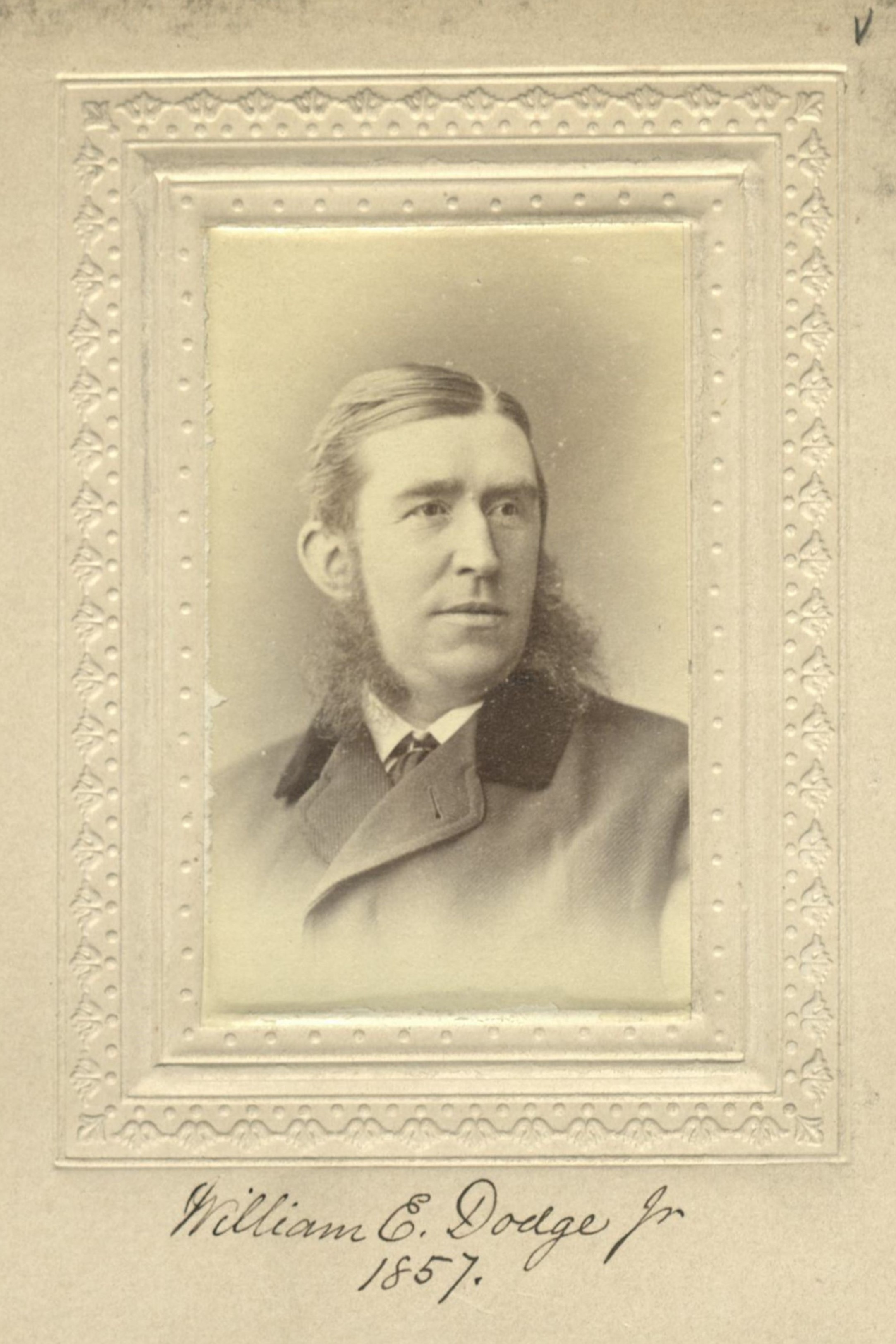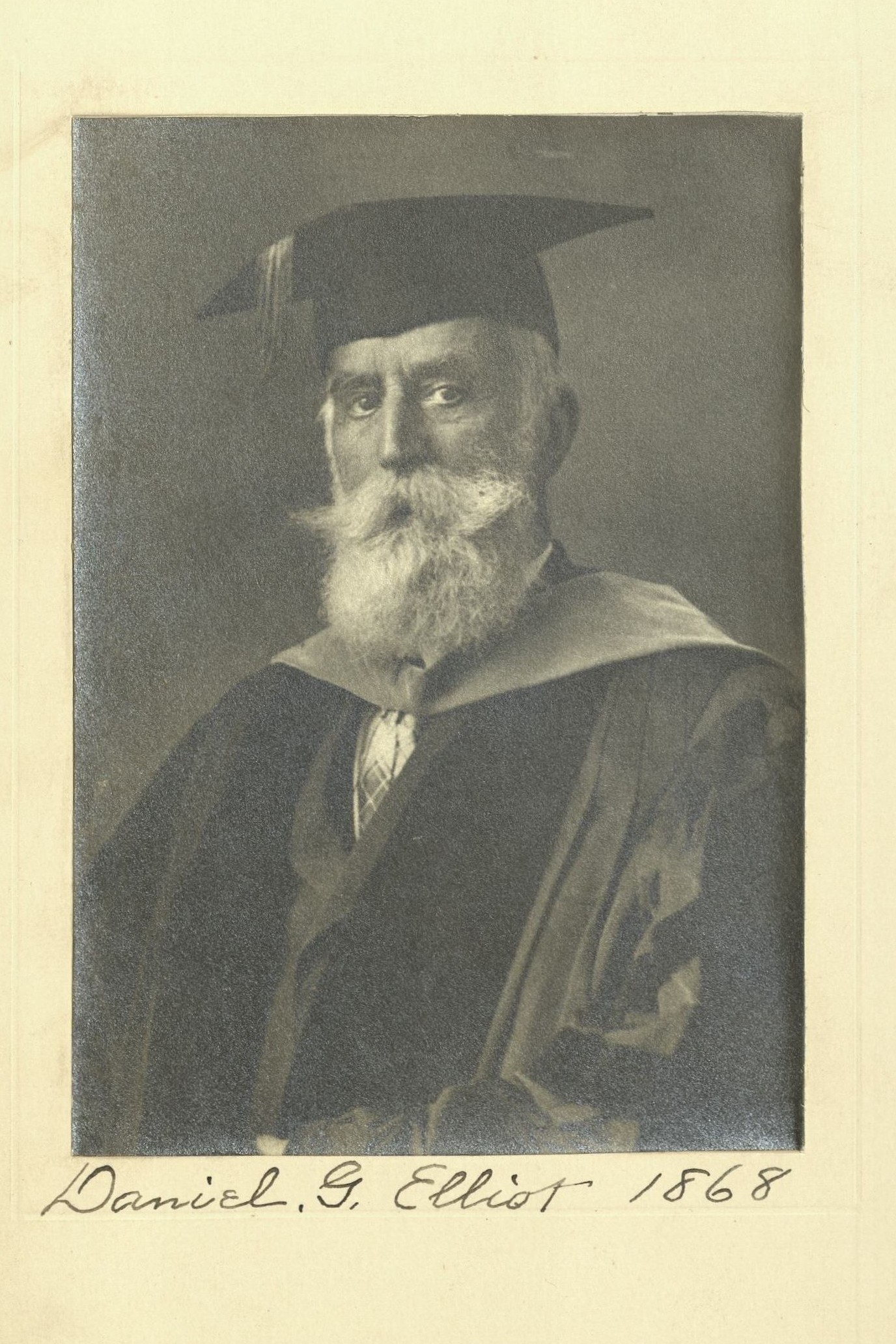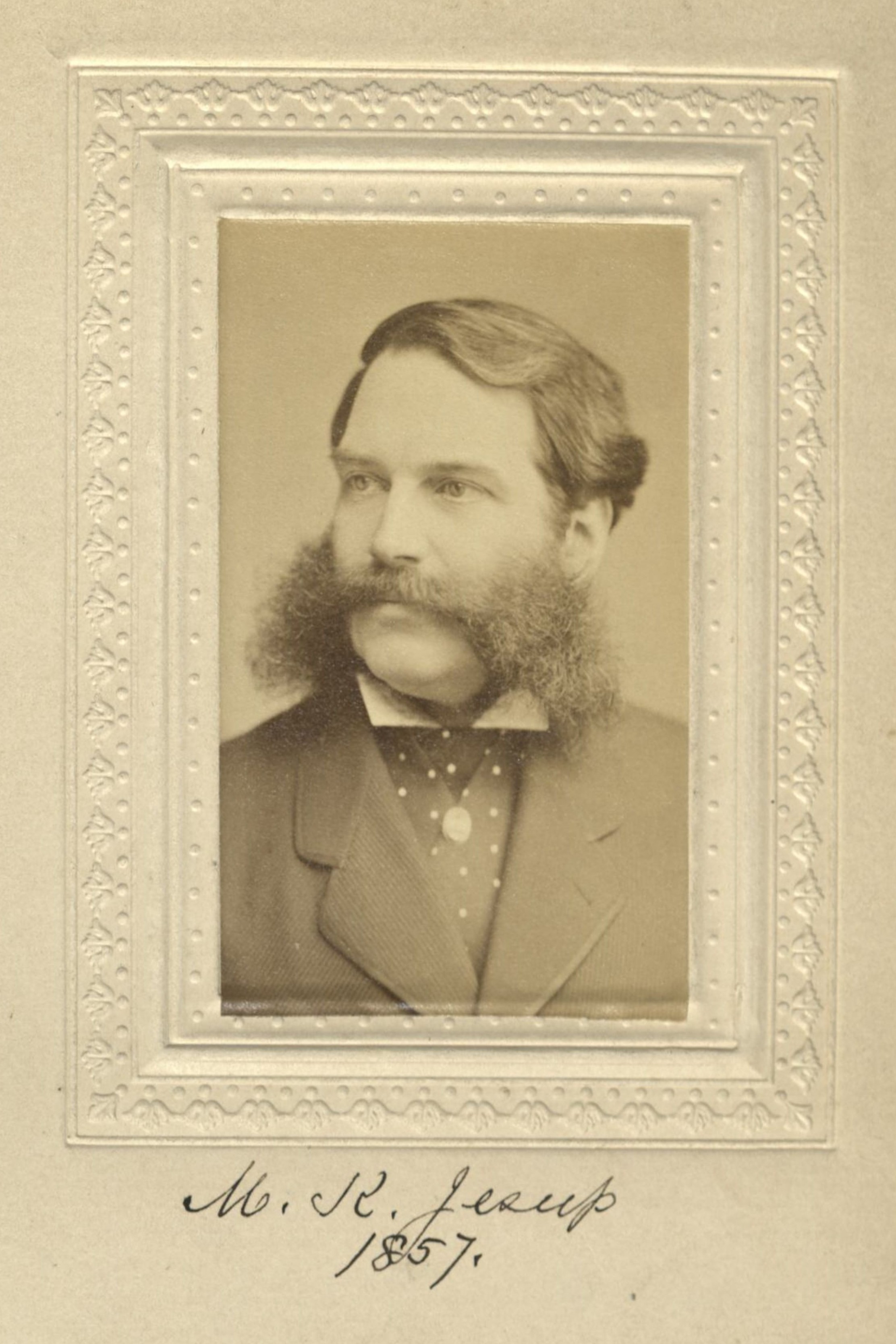Member Directory,
1847 - 1922
Frederic Ward Putnam
Professor of Anthropology
Centurion, 1897–1915
Morris K. Jesup and William E. Dodge
Salem, Massachusetts
Cambridge, Massachusetts
Age fifty-eight
Cambridge, Massachusetts

Century Memorial
It behooves us to speak at greater length of another distinguished non-resident member, Frederic Ward Putnam, who was here constantly in former years. He was born in Salem in 1839. At the age of seventeen, having thus early shown his tastes, he was made a member of the Boston Society of Natural History and entered the Lawrence Scientific School of Harvard, to study under Louis Agassiz, and Jeffries Wyman and Asa Gray. The next year, 1857, he became Agassiz’s assistant—assistant to Louis Agassiz at the age of eighteen!—and then Curator of ornithology, Curator of vertebrata, and other matters. In 1874 he was made Curator of the Peabody Museum of Harvard University, a post which he held till 1909, when he was named Honorary Curator. In 1886 Harvard made him Professor of American Archæology and Ethnology; and in 1903 he became director of the Anthropological Museum of the University of California. He was chief of the department of Ethnology at the Chicago Exposition. Many indeed were the posts of work, and scientific influence and honor, which Professor Putnam accumulated through a natural and universal fitness, and through his enormous tact and capacity for guiding workers and stimulating benefactors of science. American Archæology and Ethnology owe largely to him their broad advancement in the last thirty years. Here in New York, we knew this perfectly lovable and genial man when he was curator of Anthropology at the American Natural History Museum from 1894 to 1903, where he worked alternate fortnights, thus dividing his time between the Peabody and our Museum, and—we may add—The Century.
It would be impossible to enumerate the scientific societies to which Professor Putnam belonged—so often to their great benefit—or the honors which flowed to him from both sides of the Atlantic. The congratulations and addresses, full of admiration and affection, which came to him at the time of his seventieth birthday were bound together in two huge volumes astounding to behold. One could hardly imagine such multitudinous and universal recognition coming to one man. It came not to the scientist merely, but to the man who himself abounded in affection, sympathy, and good fellowship.
Henry Osborn Taylor
1916 Century Association Yearbook




